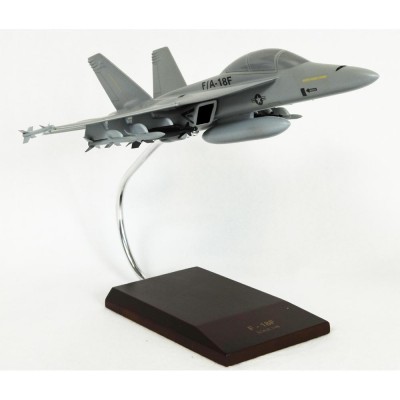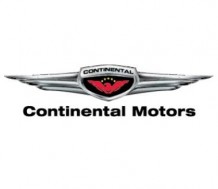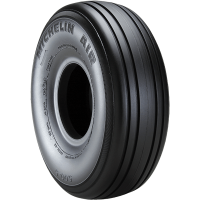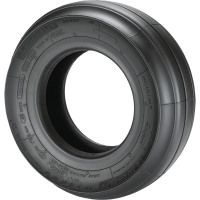1-877-795-2278 | info@aircraftspruce.ca
Aircraft Spruce Canada
Brantford, ON Canada
Corona, CA | Peachtree City, GA
Chicago, IL | Wasilla, AK
Aircraft Spruce Canada
Brantford, ON Canada
Corona, CA | Peachtree City, GA
Chicago, IL | Wasilla, AK
THE AVIATION SUPERSTORE FOR ALL YOUR AIRCRAFT & PILOT NEEDS | 877-795-2278
F/A-18F Super Hornet Model
$328.00/Each
Part# 13-10691
MFR Model# CF018FTR
MFR Model# CF018FTR
Overview
|
The Boeing F/A-18F Super Hornet is a carrier-based multi-mission strike fighter that entered service with the United States Navy (USN) in 1999. It is a larger and more advanced version of the night strike F/A-18C/D Hornet. The Super Hornet prodvides the battle group commander with a platform that has range, endurance, and ordnance carriage capabilities comparable to those of the retired A-6 Intruder. Ordered from McDonnell Douglas by the USN in 1992, the Super Hornet first flew in November 1995. It is informally referred to as the Rhino, to distinguish it from earlier model legacy Hornets. Initial production began in 1995. Flight testing started in 1996 and ended in 1999. Testing involved 3,100 test flights covering 4,600 flight hours. The aircraft passed the Navys operational tests and evaluations in February 2000, and has replaced the A-6 Intruder, S-3 Viking and KA-6D. The Super Hornet is capable of performing a broad spectrum of roles, including day/night strikes with precision-guided weapons, anti-air warfare, fighter escort, reconnaissance, forward air control, close air support, suppression of enemy air defense (SEAD), maritime strike and air-to-air refueling. During Operation Iraqi Freedom, the Super Hornet flew close air support, strike, escort SEAD and aerial refueling roles. Two F/A-18Fs were forward deployed to USS Abraham Lincoln (CVN-72). On September 8, 2006, an F/A-18F from the Navys Strike Fighter Squadron 211 expended GBU-12 and GBU-38 bombs against Taliban fighters and Taliban fortifications west and northwest of Kandahar. This was the first time the unit was in combat with the aircraft. By the end of 2010, five F/A-18F squadrons (along with five F/A-18E squadrons) will operate on aircraft carriers in the Atlantic Fleet area of responsibility. |
Q&A
Please note, Aircraft Spruce Canada's personnel are not certified aircraft mechanics and can only provide general support and ideas, which should not be relied upon or implemented in lieu of consulting an A&P or other qualified technician. Aircraft Spruce Canada assumes no responsibility or liability for any issue or problem which may arise from any repair, modification or other work done from this knowledge base. Any product eligibility information provided here is based on general application guides and we recommend always referring to your specific aircraft parts manual, the parts manufacturer or consulting with a qualified mechanic.

 Aircraft Spruce Canada
Aircraft Spruce Canada








